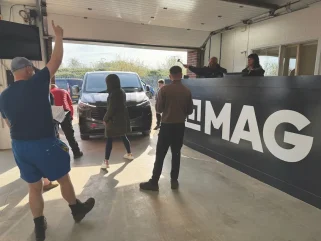
Stalling demand from light commercial vehicle operators for electric vans, coupled with a reduced availability of new diesel vans because of manufacturers directing
their resources towards producing EVs in order to meet the sales targets set out
in the government’s Zero-Emission Vehicle (ZEV) mandate, is leading businesses
to postpone the remarketing of their existing diesel van fleets, according to industry insiders.
A whitepaper from fleet software firm Fleetcheck argues these combined factors are persuading operators to extend their van replacement cycles.
Fleetcheck commercial fleet consultant Barrie Wilson says: “The most probable result of these market conditions is that diesel vans are going to become increasingly short [in] supply and more expensive.
“Yes, some fleets will start to electrify in response but the indications that we see across our customer base are that many will hang onto their existing diesel vans for much longer.”
Extending the working cycles of diesel vans demands a high level of maintenance and means resale values are likely to come under pressure when they are eventually remarketed.
“One of the key developments we saw post-[Covid-19] pandemic was for fleets
to extend their replacement cycles,” Wilson points out.
“They are typically already a couple of years longer for diesel vans than before Covid and there is now this possibility they could be stretched even further.”
Wilson said keeping hold of diesel vans for longer periods could create safety issues and increase running costs as well as having a detrimental environmental impact and damaging corporate image if the vans’ appearance began to deteriorate.
The white paper highlights four key areas for fleets to focus on if delaying remarketing their vans: routine service and maintenance, defect management, record keeping and data collection and budgetary pressures.
Wilson says: “There’s no denying that operating vans into probably eight years and longer will create significant issues for fleets and we use the white paper to examine these.”
MAG on the move
In other remarketing news the Motor Auction Group (MAG) has opened a new £5m LCV auction site in Goole, Yorkshire, having transferred the business from its previous location in Bawtry.
The company said the new site sold more than 200 used LCVs in its first
two sales. It said the first sale saw a 100% conversion rate for its top five vendors, with an overall conversion rate of 87%, while the second saw an 82% conversion rate.
Vehicles sold ranged from sub-£1,000 panel vans to pick-ups that made over £30,000.
MAG opened for business in Goole within two months of buying the site. MAG group operations director Justin Lane says: “Our refurbishment and valeting team are live on site and our logistics partners have plenty of space to deliver and collect vehicles. Feedback from the physical buyers has been [on] how easy it is to get here and park.”
Commenting on current used LCV market trends MAG head of LCV Geoff Flood says: “The used LCV market remains strong for any vehicle that is between three and five years old in good condition physically and mechanically. The current worldwide economic challenges are working in the favour of the market as buyers are happier to invest in a used vehicle at £10,000 rather than take out finance to fund a new vehicle at £40,000.
“Buyers continue to stay away from vehicles that are in poor physical condition or that need parts due to the delay in getting a vehicle on their forecourt.
“Some specialist vehicles like Lutons have been a little slow of late, but generally Q2 looks set to continue in the same positive vein as Q1.”
Supported by:






